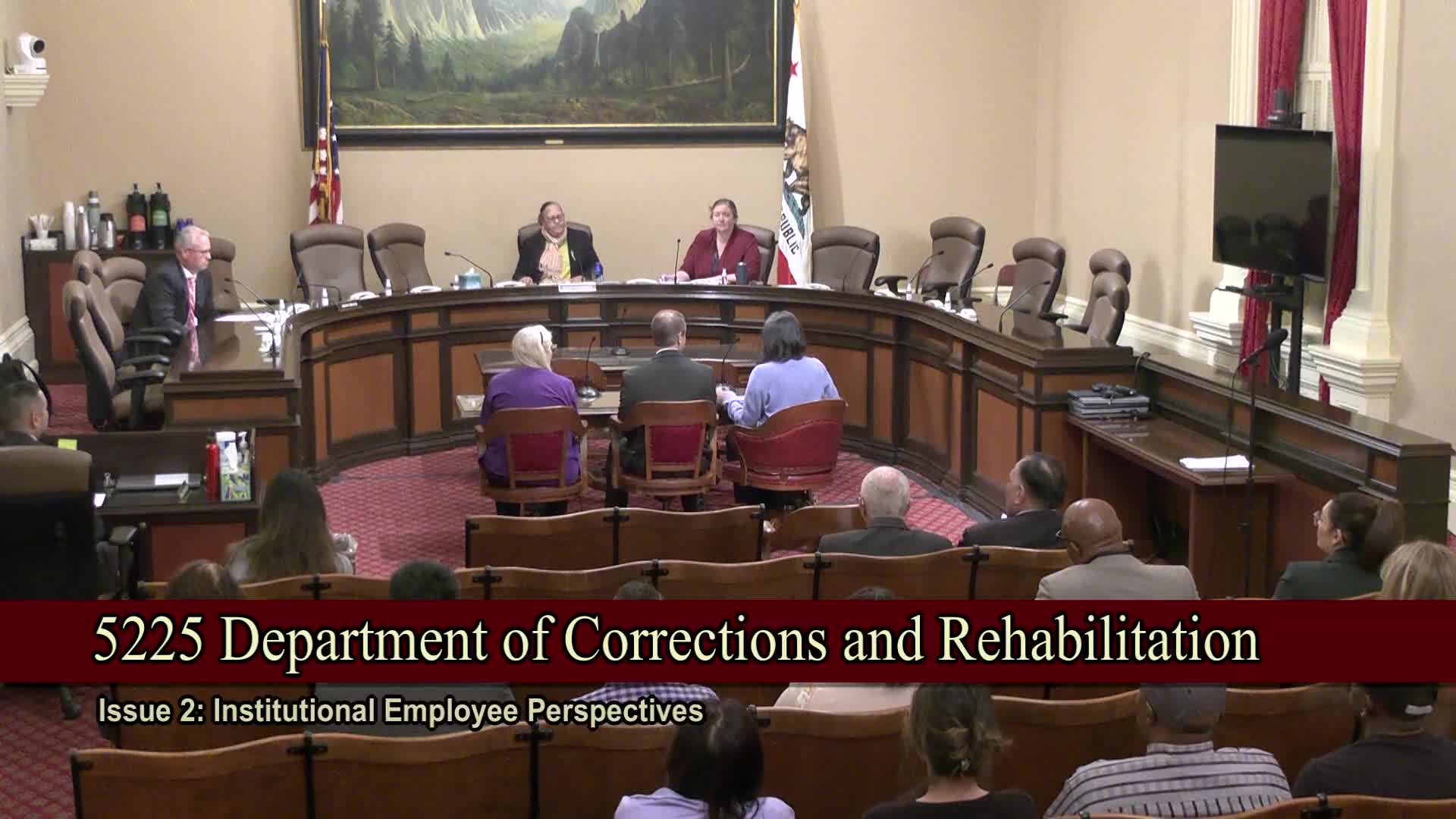Prison psychiatrists, psychologists and nurses tell Senate contracting, mandatory overtime and registry stretch staff and threaten continuity of care
Get AI-powered insights, summaries, and transcripts
Subscribe
Summary
Civil servants working inside state prisons told a Senate budget subcommittee that high contractor pay, extensive use of registries and mandatory overtime reduce continuity of care for mentally ill patients and increase safety and retention problems for staff.
Three institutional staff representatives—psychiatrist Dr. Navarette Mann (UAPD), clinical psychologist Dr. Aaron Cannon (AFSCME Local 2620), and licensed vocational nurse Heather Markovich (SEIU Local 1000 bargaining unit chair)—told the California State Senate Budget Subcommittee No. 5 that contracting, mandatory overtime and registry use degrade patient care and working conditions inside CDCR institutions.
Dr. Mann said contracting out clinical psychiatry has increased sharply and harms continuity of care. “Contract psychiatrists are making a lot more money than they ever have … we've heard of psychiatrists made over $100,000 per month just working as contract psychiatrist,” she said. Mann explained that short-term contractors often avoid complicated treatment plans they cannot follow long term, leaving chronically ill patients less stable and more expensive to treat after crises.
Dr. Cannon, a civil‑service psychologist with 18 years of CDCR experience, described the prison clinical environment: “We went cell to cell checking on our patients… there is the banging and the yelling and the screaming and the urine and the feces and the blood and the spit and the pepper spray… These are our people. That’s what we do.” Cannon said contractors often make two to three times more than civil servants and that clinicians frequently leave civil service to become higher-paid contractors, undermining efforts to establish trust and continuity with patients.
Heather Markovich, representing nursing staff, said mandatory overtime and use of costly registry contracts have eroded the permanent nursing workforce. She told the panel CCHCS spent “$138,000,000 this year in registry” and asserted the state’s longer-term registry spending “since 2014” is substantial (she provided multiple figures during testimony). Markovich said an RN at Avenal State Prison received a one‑month paycheck of $30,897 under registry arrangements and described how registry staff can pick preferable shifts while state employees face mandated assignments and repeated mandatory overtime.
All three witnesses described safety incidents and equipment problems. Dr. Mann and Dr. Cannon recounted being assaulted by patients; Dr. Mann said radios are “sometimes not available and sometimes not working.” All urged higher compensation for civil‑service clinicians and nurses, faster hiring processes, reduced mandatory overtime and more investment in stable, permanent staffing to improve continuity of care and reduce downstream crisis costs.
Senator Richardson thanked witnesses and said the committee would consider the testimony as it prepares for the May Revision and the governor’s budget but noted limitations in negotiating pay and broader fiscal constraints. No formal actions were taken in the informational hearing.
